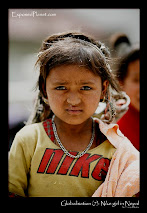MARKED
Received by deadline.
Video: Fair Trade vs. Free Trade – http://www.bigpicture.tv/videos/watch/ca46c1b95
(In relation to previous article on the cost of free trade)
Response to the video – Fair trade vs. Free Trade
After watching the video, I have a better understanding of the difference between free trade, and fair trade. I agree with Paul Rice on the advantages of fair trade, versus free trade. Through economic globalization and free trade, people in developed countries, definitely benefit from free trade. However, those in the developing world do not benefit from free trade as much. Hence the phrase – the rich gets richer and the poor gets poorer.
Fair trade conversely helps make free trade work for the poor. Fair trade does not negate the advances that free trade that made. As its name suggests, it not only incorporates the advantages of a globalized economy, but it does not leave the developing countries behind.
It is also good to know that the World Trade Organization is increasingly looking into a fairer world trading system. This way it is possible for globalization to reduce poverty rates. It is quite appalling to know that there are still people around the world who are living in poverty.
For us in Singapore, we are hardly aware of the plight of the less fortunate in third world countries. After watching the video, I better understand why fair trade should be used over free trade, and the advantages that it brings. We should try our best to help the less fortunate in any way that we can, hence being able to progress as a whole world.

Free trade is a system in which the trade of goods and services between or within countries flows unhindered by government-imposed restrictions. Such trade allows specialization in member states of free trade areas, and lowers costs. Within a free trade area there are no barriers, such as tariffs and quotas. These would seem as beneficial to us. But there are still some people who are against having free trade, and economic globalization. Why is this so?
• Free trade claims that it would create jobs and raise incomes, in reality, many jobs were instead lost.
o For example, in the North American Free Trade Agreement, there was a lost of 879, 280 jobs in the U.S.
• Free trade affects the environment.
o The pollution from the export of goods as well as the resource used throughout the life cycles of products, are all ways in which free trade can damage the environment.
• The plight of the developing world
o Developing nations do not enjoy similar benefits of free trade as the larger nations do. The relatively new industries of developing countries would struggle against international competition.
Are we actually paying for free trade, without knowing it? What are the costs of economic globalization? Think about it.
Bibliography
http://en.wikipedia.org/wiki/Free_trade
http://www.religion-online.org/showarticle.asp?title=255
http://www.epi.org/content.cfm/briefingpapers_bp147
http://twohandsworldshop.com/blog/tag/free-trade/
http://www.commondreams.org/views04/0108-10.htm
http://www.economicshelp.org/2007/06/advantages-and-disadvantages-of-wto.html
This shall be the 3rd installment to the series Globalization and Politics. Today’s essay shall cover the rise of Non-governmental Organizations, otherwise known as NGOs. NGOs form a critical part of the globalization of politics. Why so?
Globalisation, as early as the 20th century, gave rise to the importance of NGOs. At that point in time, many around the world perceived international organizations like the United Nations or the World Trade Organization as being too centered on the interests of capitalist states. The United States of America, as well as the other 4 member states which possess veto powers, only reinforced this ideal. As such, the rise of NGOs, many political scientists believe, serves to counterbalance this trend. NGOs are mostly considered apolitical in nature, with minimal to no hidden agenda. As of today, there are 40 000 over NGOs in the world. Many of which are actively involved in humanitarian crises or 3rd world developmental schemes. Examples include the International Federation of Red Cross (IFRC).
As NGOs are apolitical in nature, many tend to be receptive to the idea of having NGOs amid a conflict to arbitrate peace talks or dialogues. Like international relief agencies, NGOs focusing on conflict resolution respond to major failures on the part of the international community to deal effectively with global problems. NGOs facilitate up to date extensive fact-finding missions, engage in dialogue with a wide range of groups involved in conflicts, map out strategies for defusing conflict and galvanise action by national governments and international organisations to help stabilise tense situations. Situations in Burundi, Northern Uganda, Southern Sudan, Darfur, DRC and Rwanda provide examples of where NGOs have played a decisive role in heading off major conflicts 1. On top of NGOs are not overwhelmed with bureaucracy which is the biggest door stop to the efficacy of the United Nations. Such international agencies and governments often have institutional and political limitations that hamper their effectiveness in situations of enormous complexity and delicacy. As such, NGOs tend to responded swiftly to any crises present. After the 6 hour all clear zone after the Sichuan Earthquake, the IFRC stepped in immediately, mobilizing humanitarian workers to provide aid and rescue efforts to the region. In 1995, it was estimated that around 14 million people were refugees and some 23 million people were internally displaced. This provided fertile grounds for the rise of NGO activities in this area. In most cases, NGOs responded more effectively to these crises as the international organizations and states grapple with the issue of humanitarian intervention. Their operations have helped changed lives during and after conflicts 2.
In a nutshell, NGOs are perhaps the most sought after organizations in the world due to this efficiency in handling conflicts and humanitarian crises. It’s apolitical nature with no hidden agenda, allows it to enjoy great public support, with numerous people advocating their various causes. Hence, it’s not surprising how NGOs are able to have a steady source of funding for their humanitarian missions.

BIBLIOGRAPHY
http://cache.daylife.com/imageserve/0ana8YL377goP/610x.jpg
IFRC Picture
http://upload.wikimedia.org/wikipedia/commons/thumb/b/b7/Flag_of_the_IFRC.svg/800px-Flag_of_the_IFRC.svg.png
NGO picture
http://www.gambianow.com/news/files/ngo.jpg
1. NDUNG’U WAINAINA. 2006. Role of NGOs in Conflict Prevention Control. [online] United States of America. Global Policy Forum. Available at:
2. BEN OFOSU-APPIAH. 2008. Making NGO’s more effective and Responsive in a Globalized World. [online] United States of America. Global Policy Forum. Available at: http://www.globalpolicy.org/ngos/intro/growing/2008/0328ngoglob.htm. [Accessed: 09 August 2008] Labels: zengan

-coke-boy-tibet.jpg)
-nike-girl-nepal.jpg)



